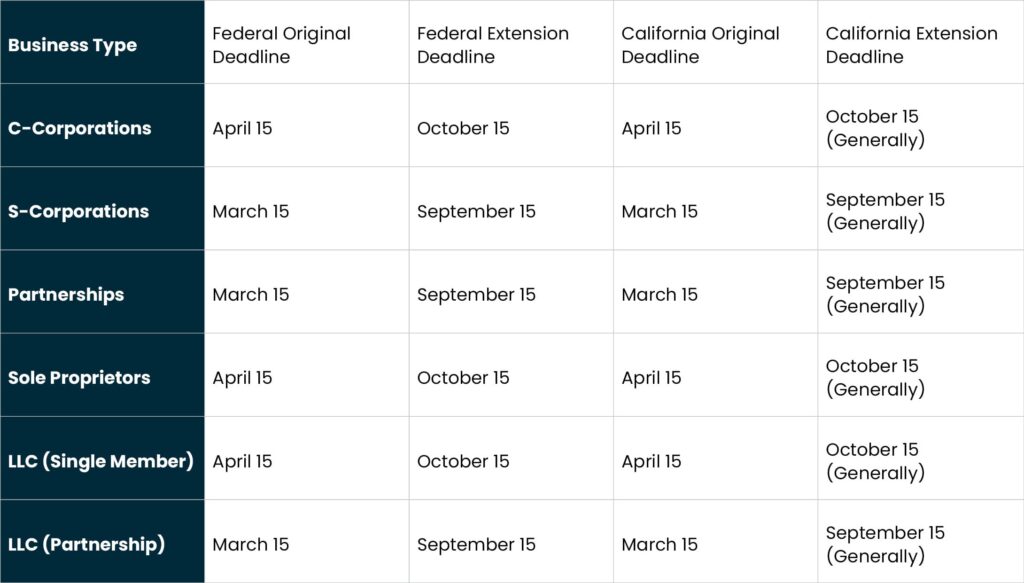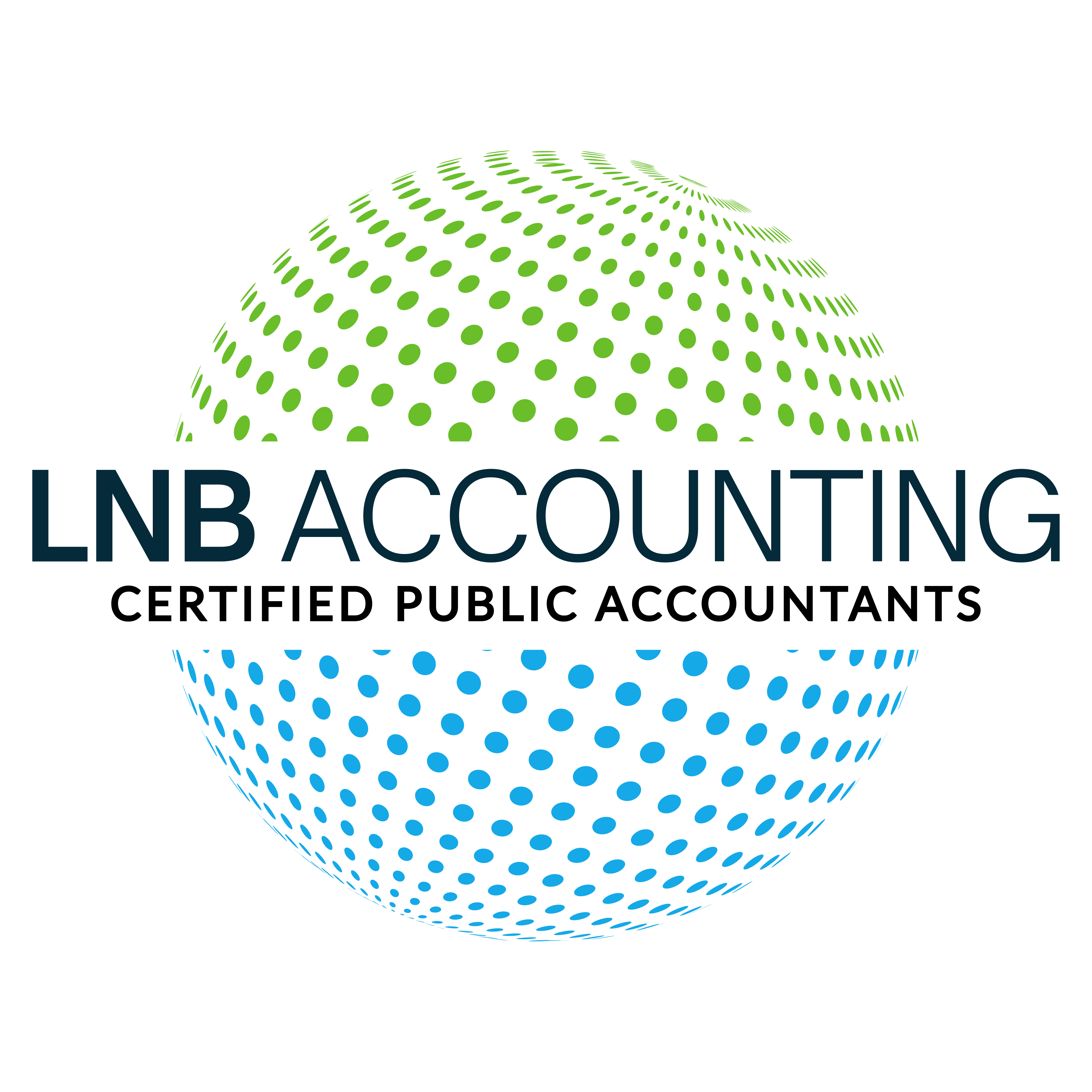Tax season brings its own set of challenges for every business owner. Maybe you’re still waiting for important financial documents, or perhaps your company’s rapid growth has made your tax situation more complex than last year. Whatever the reason, you might need a business tax extension – and you’re not alone. Understanding how business tax extensions work is essential for maintaining good standing with tax authorities while managing your company’s growth.

What exactly is a business tax extension?
A business tax extension grants you additional time to file your tax return, but it’s crucial to understand that it does not extend the deadline for paying your taxes. The IRS still requires you to pay your estimated tax liability by the original due date. Think of it this way: the extension gives you more time to finalize the paperwork, but the tax itself is still due sooner. Failing to pay your estimated taxes on time can result in penalties and interest, even if you have a valid extension.
Why might you need an extension? Common reasons include:
- Complex financial transactions that need proper documentation
- Missing information from business partners or investors
- Recent significant changes in your business structure
- Multiple income sources requiring detailed reconciliation
- Need for additional time to work with tax professionals
For Bay Area businesses using modern accounting software like QuickBooks or Sage, estimating your tax liability can be straightforward. These tools help track your income, expenses, and potential tax obligations throughout the year. For complex financial situations, consulting with a tax professional can help ensure accurate estimates.
A business tax extension isn’t a red flag to tax authorities. In fact, it’s a common and legitimate tool used by businesses of all sizes. Many successful companies, especially in sectors with complex financial structures like technology and venture capital, routinely file extensions to ensure their returns are complete and accurate.
Business Tax Extension Deadlines for 2024
Here’s what you need to know about federal filing deadlines:

Important Notes:
- These are general guidelines. Consult a tax professional for specific situations, as California rules can have nuances and exceptions.
- Deadlines may shift slightly year to year. Always confirm with the IRS and FTB websites.
- This table reflects calendar year businesses. Fiscal year businesses have different deadlines.
- Remember, these are filing deadlines. Tax payments are generally due by the original deadline, even with an extension.
California State Requirements
Here’s where things get specific for Bay Area businesses. While federal extensions are fairly straightforward, California has its own rules:
- You must file a separate state extension with the California Franchise Tax Board
- Unlike federal extensions, some California extensions require specific forms
- Different rules apply for various business types operating in California
- Local San Francisco and Bay Area business taxes might have different requirements
The Payment Factor
Remember this key point: extending your filing deadline doesn’t extend your payment deadline. Here’s how to handle the payment aspect:
- Estimate Your Tax Liability
Look at your business’s financial records. Consider factors like:
- Revenue changes
- Major business expenses
- Tax credits and deductions
- Changes in business structure
- Make Your Payment
The IRS accepts several payment methods:
- Electronic funds transfer
- Credit or debit card
- Check or money order
- Payment plans if needed
How to File Your Business Tax Extension
Filing a business tax extension can be manageable with these steps:
Step 1: Gather Your Information
- EIN (Employer Identification Number)
- Business formation documents
- Prior year’s tax return
- Current financial statements
- Estimated tax payment details
Tip: Bay Area professional service firms, gather multi-state operation and local tax obligation documents.
Step 2: Choose Your Filing Method
Electronic Filing: (Fastest)
- Tax preparation software
- Accounting services provider
- IRS e-file system
- Authorized e-file provider
Paper Filing: (Not Recommended – Allow Extra Time)
- File Form 7004 by mail
Tip: Keep proof of mailing and copies of all documents.
Step 3: Complete Form 7004
You can get Form 7004 in several ways:
- Download it directly from the IRS website
- Request a copy by calling the IRS at 800-TAX-FORM (800-829-3676)
- Access it through most tax preparation software
- Get it through your tax professional or accounting services provider
Include:
- Business name and address
- EIN
- Tax year
- Type of return being extended
- Total tax estimate
- Payments and credits
- Balance due
Tip: Use accounting software for accurate tax estimates.
Step 4: Address State Requirements
- Check California forms required for your business type
- File a separate state extension (if needed)
- Review local Bay Area tax extension requirements
- Calculate California-specific estimated tax payments
Tip: State requirements differ from federal. Pay close attention!
Step 5: Make Your Payment
Our guide on critical accounting mistakes to fix now highlights the importance of timely tax payments. When making your payment:
- Calculate estimated tax carefully
- Include estimated penalties (if applicable)
- Consider state and local tax obligations
- Keep payment proof
Tip: Late payments incur penalties, even with an extension.
Business Type-Specific Extension Requirements
Different business types face unique challenges when filing tax extensions. Let’s look at what this means for your specific situation.
Tech Startups and High-Growth Companies
If you’re running a Bay Area tech startup, you likely have some unique tax considerations:
Stock Options and Equity Compensation
- Complex valuations need careful documentation
- Multiple rounds of funding may affect your tax situation
- Employee stock options require detailed reporting
R&D Tax Credits
- Documentation takes time to compile properly
- California offers additional state R&D credits
- Technical documentation must match tax requirements
Venture Capital Considerations
- Multiple investment rounds need proper accounting
- International investors add complexity
- Convertible notes and SAFE agreements need careful treatment
Professional Service Firms
For law firms, consulting practices, and other professional services companies, consider these factors:
Revenue Recognition
- Work-in-progress billing needs proper documentation
- Partner distributions affect tax calculations
- Client trust accounts require special handling
Partnership Considerations
- Partner changes during the tax year
- Special allocations of income and expenses
- Buy-in and buy-out arrangements
Remote Work Impacts
- Multi-state tax obligations for remote workers
- Home office deductions for partners
- State-specific filing requirements
Real Estate and Property Management
Bay Area real estate businesses face their own set of challenges:
Property Transactions
- 1031 exchanges need detailed documentation
- Multiple property improvements tracking
- Depreciation schedules for various properties
Income Considerations
- Rental income from multiple properties
- Property management fee structures
- Expense allocations across properties

Common Extension Filing Mistakes to Avoid
Even experienced business owners can make mistakes with tax extensions. Here’s how to avoid the most common ones:
Underestimating Tax Liability
This is perhaps the most costly mistake. While your extension gives you more time to file, paying too little by the original deadline leads to penalties. The IRS expects you to pay at least 90% of your actual tax liability by the original due date.
Solution:
- Review your current year’s income carefully
- Compare with previous years’ taxes
- Account for any major business changes
- Consider working with tax professionals
Missing State Requirements
Many businesses focus solely on federal extensions and forget about state obligations. For Bay Area businesses, this oversight can be particularly problematic given California’s specific requirements.
Solution:
- File state extensions separately from federal
- Track different deadlines for state requirements
- Keep records of all state tax payments
- Monitor local tax obligations
Incorrect Form Usage
Using the wrong form or filling it out incorrectly can invalidate your extension.
Solution:
- Verify the correct form for your business type
- Double-check all entered information
- Keep copies of submitted forms
- Maintain proof of timely filing
Creating a Better Tax Strategy
Use your extension experience to improve future tax seasons. Here’s how:
Year-Round Tax Planning
Effective tax management happens throughout the year, not just during tax season:
- Schedule quarterly tax planning meetings
- Monitor cash flow for tax payments
- Track business changes that affect taxes
- Keep organized records continuously
Technology Integration
Modern tools can significantly improve your tax management:
- Use accounting software consistently
- Implement document management systems
- Set up tax payment reminders
- Maintain digital backup systems
Moving Forward with Confidence
Filing a business tax extension doesn’t have to be stressful. With proper planning and the right support, it can be a strategic tool for ensuring accurate tax filing.
Next Steps for Your Business:
- Assess your current tax situation
- Gather necessary documentation
- Calculate estimated taxes
- Consider professional assistance
Need help with your business tax extension? Contact us to discuss your specific situation
FAQs
Will filing an extension increase my audit risk?
No, properly filed extensions don’t increase audit risk. However, incorrect estimates or late payments might.
Can I file multiple extensions?
No, you’re limited to one extension per tax year. Plan accordingly.
What if I can’t pay the full amount estimated?
Still file your extension. Consider payment plans or installment agreements with the IRS.
How does an extension affect my employees’ W-2s?
Employment tax deadlines, including W-2 filings, aren’t affected by your business tax extension.
Does an extension mean I won’t owe any penalties?
No. While the filing deadline is extended, the payment deadline remains the same. If you underpay your estimated taxes by the original deadline, penalties may apply.
Do I need to file a state tax extension if I file a federal one?
It depends on your state. California, for example, requires a separate state tax extension. Check your state’s specific requirements.




